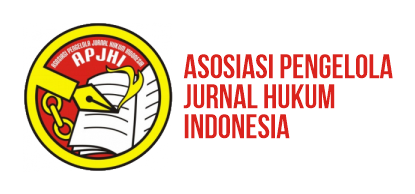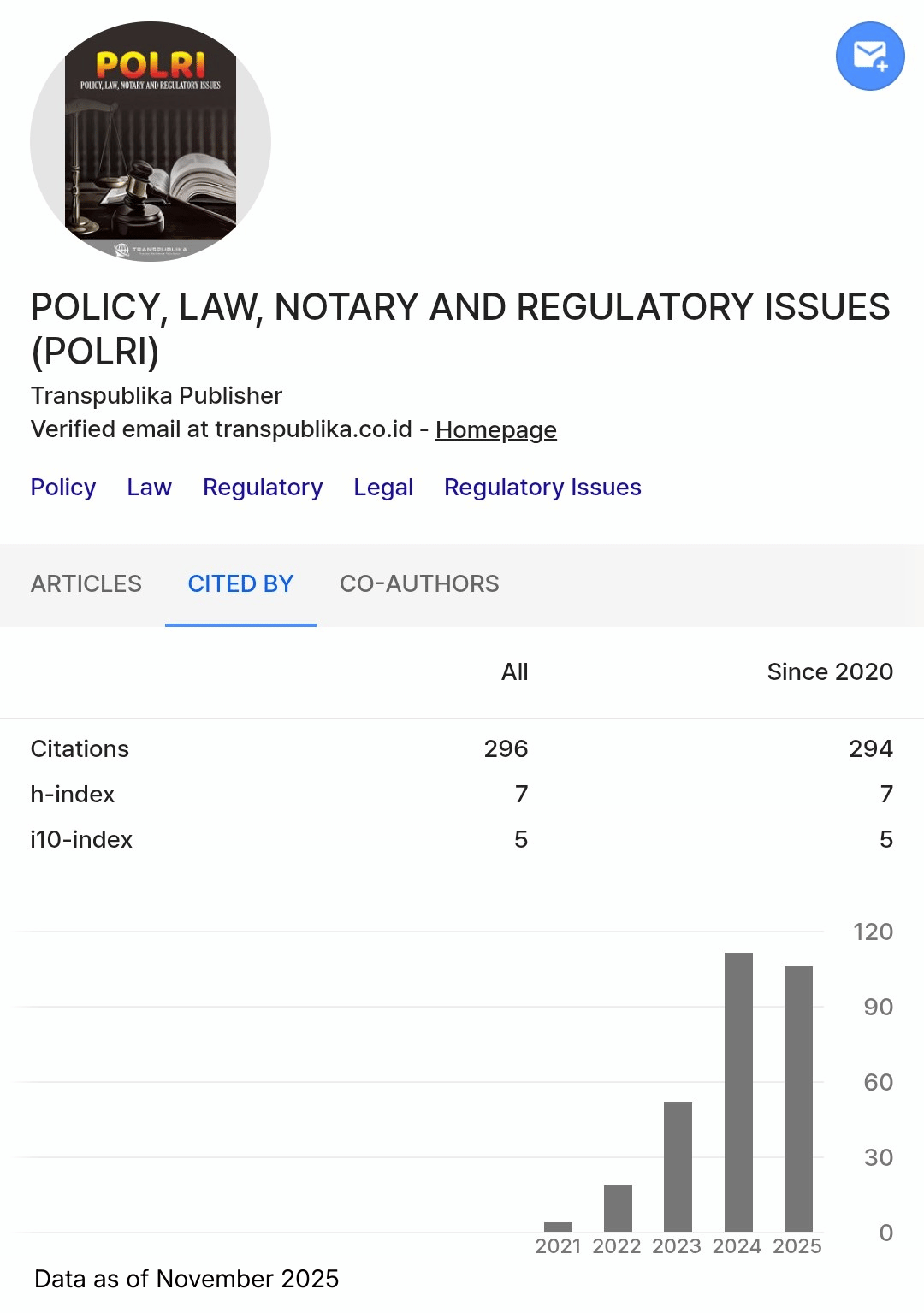ANALYSIS RELATED TO JUDGES’ CONSIDERATIONS IN THE IMMEDIATE DECISION OF CRIMINAL ACTIONS AGAINST CHILDREN
Main Article Content
Iskandar*
Ariza Umami
Dilla Fadilla
Analysis of Judges' Considerations in Imposing Decisions on Immoral Crimes Against Children and implementation of decisions related to Law Number 23 of 2002 concerning Child Protection Article 81 Paragraph (2). The purpose of this paper is to analyze the judge's considerations in deciding cases of immoral crimes against children. This research method uses an empirical juridical approach which is carried out by interviewing several respondents or related sources. The results of the study show that when judges are deciding on criminal cases involving children, they take into account both items that charge and things that relieve the issue. However, the implementation of the verdicts in criminal cases involving children is carried out in line with the Operational Standards of General Criminal Procedure, as well as with the Children's Criminal Justice System. There are three different types of decisions that can be made under the provisions of the KUHAP, namely: court decisions in the form of a judgment (Veroordeling), court decisions in the form of a redeeving of all charges (Vrijspraak), and court decisions in the form of freedom from all forms of law (Onslag van all rechtsvervolging).
Hadikusuma, H. (1995). Pembuatan Kertas Kerja atau Skripsi Ilmu Hukum. Mandar Maju.
Hamzah, A. (2000). Hukum Acara Pidana Indonesia. In Hukum Acara Pidana Indonesia.
Mulyadi, L. (2007). Putusan Hakim dalam Hukum Acara Pidana. PT Citra Aditya Bakti.
Nashriani. (2012). Perlindungan Hukum Pidana Anak di Indonesia. :PT Raja Grafindo.
Soedarto. (1986). Kapita Selekta Hukum Pidana. Alumni.
Law Number 11 of 2012 concerning the Juvenile Criminal Justice System
Law of the Republic of Indonesia Number 35 of 2014 on amendments to Law Number 23 of 2002 concerning Child Protection
Law Number 16 of 2004 concerning the Prosecutor's Office Article 2 Paragraph (1) of the Prosecutor's Law















